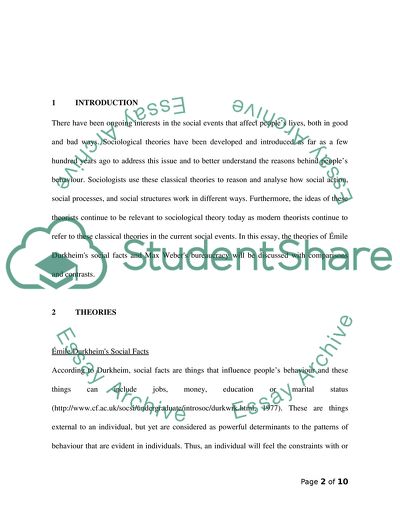Cite this document
(Compare and Contrast the Concepts of Durkheim's Social Facts with Term Paper, n.d.)
Compare and Contrast the Concepts of Durkheim's Social Facts with Term Paper. Retrieved from https://studentshare.org/sociology/1723635-compare-and-contrast-the-concepts-of-durkheims-social-facts-with-webers-bureaucracy
Compare and Contrast the Concepts of Durkheim's Social Facts with Term Paper. Retrieved from https://studentshare.org/sociology/1723635-compare-and-contrast-the-concepts-of-durkheims-social-facts-with-webers-bureaucracy
(Compare and Contrast the Concepts of Durkheim'S Social Facts With Term Paper)
Compare and Contrast the Concepts of Durkheim'S Social Facts With Term Paper. https://studentshare.org/sociology/1723635-compare-and-contrast-the-concepts-of-durkheims-social-facts-with-webers-bureaucracy.
Compare and Contrast the Concepts of Durkheim'S Social Facts With Term Paper. https://studentshare.org/sociology/1723635-compare-and-contrast-the-concepts-of-durkheims-social-facts-with-webers-bureaucracy.
“Compare and Contrast the Concepts of Durkheim'S Social Facts With Term Paper”. https://studentshare.org/sociology/1723635-compare-and-contrast-the-concepts-of-durkheims-social-facts-with-webers-bureaucracy.


